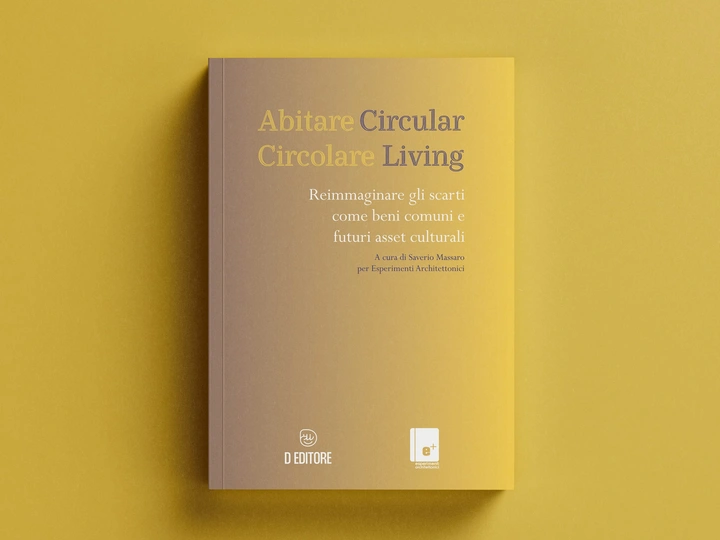CIRCULAR LIVIING

ESPERIMENTI ARCHITETTONICI MEMBERS
PhD in Architecture with the dissertation “Integrated urban strategies to tackle the waste crisis. New opportunities for a civic architecture" at Sapienza University in Rome.
I conduct research and dissemination activities on the issues of circular urban metabolism. I carried out teaching and research activities at Sapienza University and taught also at Rome University of Fine Arts and TEC de Monterrey (Mexico). I've been visiting researcher at the Institute of European Intellectual Lexicon and History of Ideas (ILIESI-CNR, Rome). I'm currently a researcher and adjunct professor at the University of Basilicata (Matera) in design studios.
Alongside my academic activity, I work as a civic designer for the promotion of urban regeneration strategies and the coordination of participatory processes. Moreover, I carry out consultancy activities for public administrations and bodies about participatory processes and sustainable public procurement management.
In 2021 I have been selected by Open Design School (Matera) to work as a social designer at So Far So Close Festival on practices of infra-pandemic closeness.
Since 2014 I'm co-founder and director of the Altamura-based non-profit organization Esperimenti Architettonici, a multidisciplinary collaborative platform aimed at promoting urban regeneration processes.
For Esperimenti Architettonici I'm the curator of the project/publication "Circular Living. Reimagining waste as Commons and future cultural assets" (D Editore, 2022), started with an international online conference hosted within the program of events of the Italian Pavilion "Resilient Communities" at the 17th International Architecture Exhibition Biennale in Venice.
I have. edited and participated in publishing several books and papers in architecture and urban studies journals.
Since 2023 I'm the director of the School of Architecture for childrens in the city of Taranto (Puglia, IT), a format conceived and developed by FARM Cultural Park in Favara.
CL has the aim of activating a discussion between designers, scholars, policy makers, no-profit organizations and cultural institutions on the themes of urban metabolism, circularity and bioeconomic in relation to living conditions in the 21st century, with a focus on Apulia Region, highlighting the key role of waste in city-making practices and by defining an innovative framework, both conceptual and operational, which proposes a perspective on waste based on a relational approach and on a commons model.
The book contains the traces of a journey started in 2021 with an online conference hosted within program of events of the Italian Pavilion "Resilient Communities" at the 17.th International Architecture Biennale in Venice and was made possible thanks to the grant by the Directorate General for Education, Research and Cultural Institutes. It continued with a webinar, a workshop -– held in Monopoli (BA) – and an Open Call for Best Practices promoted on the occasion of the 13th European Week for Waste Reduction (EWWR) dedicated to the theme "Circular Communities".
CL intends to activates different actors and communities to test new models of the regenerative circular economy starting from three main assumptions:
1. Waste is information embedded into matter and it changes according to social agreements in time and space. This is even more evident thanks to IT and digital revolutions.
2. Flows of waste are not negative externalities neither resources to extract but they are commons to be collectively and carefully managed within a new value chain.
3. Cities should integrate a new civic architecture for resources management, by joining the physical upgrading of spaces and social innovation processes.
Here is proposed to activate discussions, workshops and experimenting initiatives, by creating the conditions for the dozens of authors, professionals and case studies included in the book to interact with the several fellows of LINA Community.